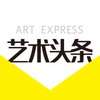分享到微信,
请点击右上角。
再选择[发送朋友]
或[分享到朋友圈]

渼陂组画
Meibei Series
我们不可能不带立场进行观看或描绘,无论写实或虚构。当我们一方面很真实对所见进行记录,另一方面我们也在为看不见的东西定义。渼陂组画从多种角度对此有所阐释。
其中《殇》是很日常的杀狗场面,置入当代艺术语境,尤其以展览的方式呈现,具有后现代的意味。“渼陂几乎家家养狗,老街狗的品种很单一,个头不大,墩实朴素,它们通常睡着把守门口,大概游客增多,习惯了陌生人的往来,它们很少吼人,只有在围墙内被惊扰的狗才会生发出恶意,它们比主人更拒绝陌生人造访。新街一带的狗模样要多些,它们爱成群取闹,毫不理会过往行人,不合群的狗爱睡觉,甚至就睡在街中间,任凭行人车辆过往,大概它们以为在自家门前路口睡觉是应有的权利。在人多闹热处单单有一只睡觉的狗,很像安详的圣物,过往的行人显得异常仪式。终于有一只狗被宰了,主人用热水浇灌后开始拔毛,主人说它可能会伤人,伤了人的狗会让主人赔罪不起,主人致其乌乎,死狗显露着狰狞的牙永远睡着了,少有行人看它,就像它活着睡觉时没人理睬。它的同伴有的还在街中心睡觉,有的仍在嬉闹。我们不知道狗是用怎样的方式去纪念它们死去的同类,就像它们也不想理睬我们如何关注它们在何处睡大觉或如何拉屎尿尿,甚至做爱。小黑狗提早死去了,主人让亲朋好友分享了狗肉,都很满意”。
《发屋》里的理发师和他的顾客以及镜子里被照映出来的细节,看起来有一种调侃的意味,这种调侃与人物对象似笑非笑的视觉挑战有关。我在图记中写道:“集市上一家发廊是一个头发染成黄色的中年男子开的,屋内简陋,但常常能传出时尚的音响,棕黄色头发并有造型的理发师在整条街或整个村特显另类。他临街的发屋每天开放,不时会有相识却并不需要剪发的人出入其间,与街面不远处逢单当墟露天营业的老理发师相比,他的生意不好不坏,总会有需要打理的农民光顾,他好像很习惯并享受着这样有人攀谈和言笑的时光。临街有很多鸡狗,闹热并嬉戏,发屋里的镜面每天照映着它们不同的欢快场景”。
对传统图式的挪用也使得现实有了被虚拟的意味,《花发》中描绘的梧桐落叶即拟写了清代新罗山人的笔意,实际上是将现代生活场景与古典图像做了一些结合。图记有:“渼陂集市小店铺门前有数株梧桐树,四月清明前后花开飘落,芳香扑鼻,雅致的清香与纷乱的街面市容错叠了一种身心的存在。当墟过后街面残存的垃圾所招致的蚊蝇,扑打着梧桐清香,使得嗅觉在忙乱中时而停顿时而被牵引。一夜春雨洗桐,侵扰花落,花儿如纤手般折伤在浑水浊泥中,越发让清香弥散开来。摩托车辗过落花,混杂出另一种芬芳。被惊扰的鸡犬、紫燕以及漫天舞动的蜻蜓醉意在花发的萌动中”。
《太阳雨》图意:“渼陂四月,蛙声一片,紫燕南翔,布谷鸟伴唱。田间地头,农民犁田耕作,育苗抛秧,相比以前,在诸如除草插秧等方面,庄稼人利用科学方法少费了些苦力,农民戏称如今种的是‘懒汉田’。种懒汉田的男人不爱呆坐在家里。田埂、村居与集市相距不远,他们通常会往来其间,没有上下班的钟点,自行管理,自在行走。村中少壮男女大都外出务工,使得这些原本孤独的个体由于当墟日的嘈杂,‘懒’出了一份闲适,他们看上去如此步调一致,天晴乍雨之日撑伞扛锄,三个男人只为一小捆菜,一只鸡,一块肉在太阳雨中奔走”。画作来源于一个老人一手提着一块肉,另一只手提着一颗小菜的一张写生稿,当这个内容转移到创作里的时候,实际上已经在用人物自身的表情传达意义。
《当墟日》看起来有种浪漫式的书写。马在渼陂并不多见,但画中养马人与渼陂历史相关,因此有一种特别的照映。“渼陂成为旅游景点之后,村里有两位养马人用马做起了生意,马被作为道具供人骑玩拍照。马与主人有相当的默契,它们甚至异常亲昵主人。渼陂临村有一位姓罗的老理发师,他总会在当墟日临街固定的角落露天营业,小有收入。坐下来剪头的人大都是赶集的农民,临街的狗喜欢在他们周围生是非,过往车马也抢不了它们的风景。当街理发很像表演,剪完发的农民通常会与理发师言笑而别,像温润的春月,空气中弥漫着春草花香。成为被看的马以及理发师或理发师的客人享受着当墟日带来的繁华和热闹。理发师的行头家什年复一年沐浴着当墟日的阳光,像古董般倍受主人珍爱”。
《惊鸟》则有一种田园牧歌式的赞美。这个场景在我们通常到乡下去都可以看到,很多人挤在一个破车上,喧闹且不堪忍受,但一旦转移到画面上则呈现出灰色的幽默。正所谓“乡村的摩的通常会在沿途捡拾挑担扛包的客人,摇摇晃晃往来于乡间小道,与温润的春日交织出一派闹热。拥挤并不相识的过路人操持不同的方言温暖在一起。马达声响彻山涧,待哺育者与捕获者惊扰在各自的喜悦中,天际倘佯着悠闲的云”。
Meibei Series
It is impossible for us to view or painting without subjectivity, either represent or fabrication. On one hand, we honestly record what we see, on the other hand, we define what we cannot see. Meibei series illustrate these from various perspectives.
Die Young present the daily scene of dog-killing into post-modern contemporary art context. "Almost every family in Meibei raises dog. The old-street dogs are variety-unified, -small and stocky, always guard the doors in sleep. Maybe due to the tourism, they get used to the come-and-go, seldom bay to pass-by strangers, only get furious for intruders into the yard. For strange visitors to the house, they are even more rejective than the hosts. The new-street dogs look variety-diversified. They frolic in groups, with no care the passengers. The less sociable dogs prefer sleeping, sometimes even sleep in the way, let on the passengers and vehicles come and go. Maybe they think it is a natural right to sleep in front of one's own house. A sleeping dog in crowded noisiness seems a leisure saint, even the passengers look unusually grave. Finally a dog is killed. The owner scalds and epilates the dog. He explained, the dog may hurt people, if someone gets hurt, he could not afford the compensation, so he took its life. The dead dog sleeps forever with its ferocious fangs. Not many passengers care it, just as no one cares it when it was in sleep. Its friends still sleep in the way, and frolic. Its friends are still playing in the streets, some even asleep in the streets. We don't know how dogs commemorate their fellows, just as they don't care how we think their sleep, shit, leak and fuck. The little black dog died young. The owner shares its meat with friends and relatives, all satisfied."
In Barbershop, all the images of barber and his customs reflect in the mirror. The semi-grin figures challenge viewers with teasing. In the notes I wrote, "the barbershop runs by a middle-age man who dyes his hair to yellow. The barbershop is simple and crude, but always with popular music. The yellow-hair barber designs some special hairstyle for himself, which makes him looks so strange on the whole street and village. His pro-street barbershop opens everyday, with some friends in and out not for haircutting. Another old barber runs outdoor business nearby, but only have haircuts at every single Market Day. Comparing to him, the business in barbershop is neither better nor worth, with always some villagers come for haircuts. The yellow-hair barber seems get used to and enjoy the time of talking and laughing. Many chickens and dogs frolic on the front street. Everyday, the barbershop mirror also reflects the latest version of this cheerful scene."
The appropriation of traditional pattern also gives reality a virtual sense. In Blossom, the falling leaves simulates style of Xin Luo Shan Ren, as a combination of modern scene and classic view. In the notes I write, "Several Phoenix trees plant in front of Market stores. Around the Tomb-sweeping Day, the phoenix-tree followers blossom and fall, with their delicate fragrance floating above the busy streets to prove the existence of one's body and soul. When Market Day is over, the garbage left attract flies and mosquitoes confused with garbage and fragrance. Washed by the spring rain overnight, the phoenix-tree followers sprinkle onto mud, with petals trampled as broken fine hands, while the fragrance disperses to be even stronger. Motorcycles run over followers to mix them with other smells. The disturbed chickens, dogs, swallows and dragonflies all over sky all get drunk in the blossom."
Notes for Sun Rain: "April in Meibei, frogs croak aloud, swallows fly south, cuckoos accompany singing. Peasants furrows the field, and cast seedling. Comparing with before, they save quite some hard labor on weeding and seedling by scientific techniques. They call the field "idler field". The men who plant "idler field" don't sit about at home. They often wander among the ridge, house and market, which are quite close to each other. Most young labors go out for non-farming jobs, thereon in the noisy Market Day, the lonely "idlers" all look leisure. Three men carry hoes under umbrella, run in sunny rains but for a small wisp of vegetables, a chicken, and a meat." The painting is developed from a sketch, in which an old man holds some meat in one hand, and a wisp of vegetables in the other. By putting the subject into final work, I wish the figures facial expressions should be meaningful enough.
Market Day is a romantic narration. Horses are not usually seen in Meibei. However, since the horsemen in this works are related to Meibei's history, they take some privilege. "Since Meibei becomes tourism site, two horsemen run horse business. They offer horses as props for tourists' riding and photo. The horses present some tacit agreement and intimacy with their owners. In Meibei, there is an old barber whose family name is Luo, and always run his business in Market Day at a fixed pro-street corner, with quite some income. His customs are mostly farmers who come for the Market Day. The dogs on street love to make trouble around, even the passing-by vehicles and horses cannot challenge with them. The hairdressing on street looks like a performance. The peasants with their hair cut usually have a cheerful talk with barber before they leave. In warm and humid spring, the fragrance of grass and blossom permeated in the air. All the horses, barber, as well as his customers, enjoy the flourishing and busy Market Day, and become objects of watching. The barber's paraphernalia bath in sunshine of the Market Day one year after another, and become the most treasured antique by its owner."
Frighten Bird is a lyric hymn. The scene is familiar in villages. Many people crowd in a shabby vehicle with unbearable noise. However, it becomes a grey humor as a picture. "All village motor-taxis will pick up the passer-bys with loads, wobbles back and forth on the village path to present a lively picture warm and humid days. The crowds strangers talk with various dialects. Motor rends all the mountain streams. Those to be feed and those who prey both immerse in their own joys, with the leisure clouds on sky."
“义仓”写真
“义仓”写真活动实际上是我对村民所做的随机抽样图像报告,并非一般意义上的给村民画像。
“模特儿”既是工作者也是旁观者,他们在看热闹的同时为生计呈现了某一时段的生活品质,具有村落史的原生态特征。
我用比较传统的笔墨语言描述这些村民,是基于渼陂至今保留的一些时代印记。
我有意捕捉到他们在遭遇外来客时的笑态,对这种表情的凝视传达出后现代艺术的调侃意味,本质上是关于村民生存逻辑的疑问,并力图用这样的疑问来寻求建构村民图像谱系。“义仓”写真作品另一层面的阐释需要通过特定的展示,使之转换出新的意涵。
文字展示从另一维度提供了观看这些画中人的视角,譬如,“第一个写真模特儿,看上去机敏健壮,面色黝黑,谈话时眼角总有一丝怯生生的喜悦,却含着和善”。
“梁兴裕老人,像一个非常需要同情的老人,步履蹒跚,手上大多时候会提着那个印有'猪用浓缩饲料'的塑料袋,袋子里空瘪瘪的任风吹曳”。
“袁才凤老人手持龙杖的坐像比站姿更显气度,像影视片里的西王母或皇族贵胄家的老祖母。但她一直是个裁缝”。
“昌涛老人满口安了一幅假牙,白白且整齐地表达着他的笑意,画像中我没给他张开的嘴露白齿,拿农具的样子在他看来也不表达自己的气质”。
“女寡妇有张方长阔大的面庞,几乎没有一丝女性特质。长长的深蓝色工作服张扬了她的高大,她异常简洁地立在了我画板的左前方”。
魏三俚是被人称为“垃圾婆”的那一位,她几乎靠捡垃圾为生,性情温和。 在村里、在若干熟悉的面孔下,她习以为常寻拾着残杂物。爬满皱纹的脸一直在收缩她的微笑,也时刻在呈现一种看似的微笑“。
“画像中李金法没有任何身份暗示,就像他无声地来无声地去。这位常住渼陂却并非”文献名宗“、”衣冠望族“的外地人,异常沉静地留守在梁氏祖上荣光照耀的土地上”。
"Yicang" Portraiture
"Yi Cang" Portraiture is a random sample of the villagers instead of the villager portraiture in common sense.
The "Models" are both workers and on-lookers. At the time they watch for fun, they also present a section of life for living. In this sense, the life they present bear the feature of original village life.
By portraying these villagers with traditional ink and brush expression, I mean to record the time trace in Meibei.
I purposefully record their smiling on confronting strangers. The gazing on this particular facial expression express a post-modern jeer. The nature of this jeer is to question the villagers' living logic, and composite a chart of villager imageries with this questioning. Another interpretation of "Yicang" portraiture is to present with new meaning by particular display.
Text indicates the figures' perspective. For example, "the first portraiture model, looks witty and strong, dark face, always some shy and genial pleasure in his eyes".
"Elder Liang Xingyu, seems a pathetic old man, always stagger with an empty plastic bag printed "concentrated feed for pig" blew by the wind."
Elder Yuan Fengcai sits with dragon stick, giving out a more powerful bearing than her standing posture, seem like Queen Mother of the West, or the grandma in royal families in movies. But she is a tailor through all her life.
Elder Changtao wears a full mouth of false teeth, and grins with all his white and even teeth. But in the portraiture, I draw no tooth in his open mouth. According to his opinion, his manner with farm tools does not match his bearing.
"The widow has a big square face, without the least female looking. The long dark-blue denim stresses her big high impression. And she stands at the left-front of my palette in an definite way.
Wei Sanli is known as "garbage lady". She makes a living by collecting garbage, with a mild character. Under the familiar gaze in this village, she has already get used to search and collect leftover sundries. Her wrinkled face diminishes her smile, and present an appear-like smiling.
"In portraiture of Li Jinfa, there is not any identity indication, just as his silent come-and-go. As a resident in Meibei, he is not from any big famous families, but an outlander. He quietly stays in the field enlightened by Liang's glory ancestors."
作者:雷子人

分享到微信,
请点击右上角。
再选择[发送朋友]
或[分享到朋友圈]

